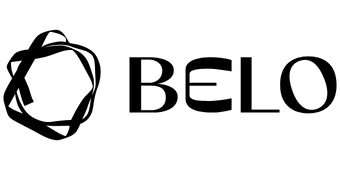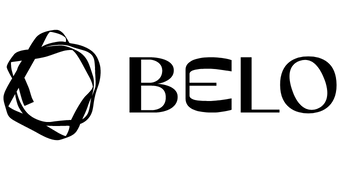Responsibility Report October 2021
A message from the founders:
"Since day one, we are on a mission to disrupt and change the perception of beauty and waste in the fashion industry. We believe our actions as individuals and as a brand can set the tone for the next generation to follow.
Fashion has the power to galvanise change, when harnessed correctly, it can alter human behaviour to build a kinder world.
BELO is not a sustainable brand but instead, a company focused on making conscious choices to minimise our negative impact on the planet. We are committed to cultivating an ever evolving business model focused on environmental responsibility and progressive social activism.
This is called a responsibility report because we believe we have a moral obligation to be accountable and always do better. This report aims to bring transparency to our business practices, to reflect on what you have helped us achieve so far and to highlight where we need to improve.
Thank you for being part of our journey!"
- Char & Maria, October 2021
OUR VALUES
INNOVATION - CRAFTMANSHIP - PEOPLE - PLANET - KINDNESS
We are tackling waste and poverty.
Waste and poverty are correlated.
Over 90% of waste is openly dumped or burnt in low income countries. The impact of waste on the health of the local ecosystems and communities can be treacherous.
Brazil produces 40% of the total waste generated in Latin America. In 2019, 79.06 million tons of waste were generated, which is an 18.6% increase from 2010. Over a 1/3 of this waste is estimated to be incorrectly disposed of. The dumping of waste in poorer communities leads to the perfect breeding ground for diseases but also contribute to serious and even fatal flooding.
We are working within our community in Belo Horizonte, Brazil to bring a solution to these issues by using the power of design to mitigate industrial waste from being dumped incorrectly and repurposing these materials into wearable products.
Each BELO product provides:
1 - Living wages to local artisans
A living wage is the bare minimum wage required for workers to live a decent life. It’s different from the legal minimum wage, which is usually far below the living wage. In Brazil, minimal wages are only one third to half of what a worker needs for a decent life.
2 - Education to the community on how to recycle/dispose of waste via our relationship building
3 - Investment into local charitable partners to help create opportunities for the community to thrive.
Equal Opportunities:
- Every person matters. -
Belo advocates for the importance of equal opportunities. To truly make a global impact, we need to start from within. For that reason, we have created 3 strong pillars of equality and ethics in our business practices to create a safe, inclusive and enriching working environment.
Human Rights
-
Non - discrimination: Treat everyone equally despite their age, race, gender, sexual orientation and nationality
-
Anti-violence and harassment
-
Respect
-
Communication
Workplace Regulation
-
Fairtrade
-
Non - slavery and child labour measures throughout our supply chain
-
Freedom of association
-
Ensure health, safety and well being of everyone that works with BELO
-
Promote education
-
Implement supply chain, marketing practices and community initiatives that promote equality
Transparency
-
Anti-corruption
-
Audit and close relationship with suppliers
-
Work towards Fairtrade and B corporation certification
What we currently are achieving:
Material Sourcing:
Main materials used -
|
|
|
Fabric Offcuts |
A closer look at the impact of the irregular disposal of solid waste in Brazil:
Diseases:
Irregular waste disposal is the main cause of the contamination of soils, watercourses and groundwater, as well as fatal diseases such as dengue fever, leishmaniasis, leptospirosis and schistosomiasis, among others, whose vectors find in landfills a favourable environment for their dissemination.
Flooding:
At least 8 million Brazilians live at risk of landslides or floods. For the past 20 years, 2,500 people have already lost their lives as a result of the floods.
In the city of São Paulo alone, until October 2019, the council collected 10,000 tons of waste from manholes and culverts. In Brazil, the lack of Solid Waste management lead by the large amount of garbage on the streets is one of the main factors that lead to floods. The waste that is on public roads ends up being carried by the rain to the manholes, clogging them and preventing the passage of water in the area.
How's BELO trying to solve this problem?
- We are innovating the transformation of waste into timeless, good quality and beautiful fashion accessories.
- We sourced locally in Brazil because we want to mitigate waste in the community where we make our products as well as minimize our carbon footprint.
- There is an abundance of waste materials that are designed to last a lifetime, have incredible qualities but are made into products that have a short lifespan.
- Cleansing of materials is completed using natural detergents such as natural coconut soap, which is vegan and 100% Petrochemical free
- We structured a local network of rubbish collectors, car mechanics and also industrial/fashion manufacturers to source waste to create our products. There is nothing more gratifying to us than working together as a community to solve the solid waste issue in these areas.
Less waste is one step closer to helping minimise not only flooding but also making a healthier environment to live in.
GOALS To Progress:
- By 2025, develop a circular cleansing process by reusing the water used to clean our materials.
Product Development:
BELO designs to emulate nature, inspired by the beauty of ecosystems. We believe in the importance of a circular business model to spare the waste from landfill by giving them a new purpose
- Zero waste* designing process by using the offcuts from our larger items to create our smaller items
Zero waste is an approach to fashion design that eliminates waste from a product. Zero waste products require fewer resources than conventional styles and aim to address the average 15% fabric waste created during production.
- Partner with local universities and industry experts to ensure we are making the right decisions on how the materials are sourced and how to use them to create longevity.
- The hardwear of our products are not made from recycled sources because we have not found a local alternative yet that meets our quality standards.
GOALS To progress:
- In the next 3 years, invest in research, partnerships and the development of hard wear made from recycled materials. Striving to have our first collection of accessories with recycled hard wear by 2025.
- By 2023, implement yearly chemical and carbon footprint analysis of our products.
Manufacturing:
- We started with 3 artisans and now, we work with 32 artisans that are paid a fair living wage and work in safe conditions.
- Hydroelectricity supplies the energy to our manufacturing sites.
- We produce in short runs not only because of the limitations of sourcing upcycled materials but also to minimise our impact of overproducing.
- We work with a local Brazilian BCORP registered company to make our recycled fabric from plastic bottles and fabric offcuts.
GOALS To Progress:
- In the next 2 years, to work towards a zero waste manufacturing process as well as supply regular training to our artisans on sustainable craftmanship.
Shipping:
- As a small business, we use air freight currently and we do not offset our air miles.
- We use cardboard boxes made from responsibly sourced/ recycled materials.
- All our tapes to seal boxes are biodegradable.
GOALS To Progress:
- By 2023 develop a carbon offsetting scheme for not only our shipping but our manufacturing process too.
Impact Measurement:
- We measure the number of meals and waste materials we repurpose.
GOALS To Progress:
- In 5 years, complete an external body audit and study the true worth of our impact on the community we work in. This assessment will review both quantitative and qualitative elements of our impact. Consequently, we can develop ways to continue improving and benefitting our community. When our business model is fully structured and validated, we would like to share it with other fashion brands and replicate it to other platforms.
Packaging and labels:
- We minimise packaging and design it to be reusable where possible.
- Any plastics we may receive from external providers we re-use as stuffing for bags or we recycle.
- Where possible, we use materials that are biodegradable and compostable.
- Our labels are made from recycled paper and our dust bags are made from fairtrade organic cotton sourced in Brazil.
GOALS To Progress:
- In 2 years, develop a postal packaging to minimise our use of cardboard boxes.
Product Maintenance:
- We grant repairs to all customers whose products require restoration in the first 2 years of purchase free of charge. Postage costs are split between the customer and ourselves. After those 2 years, the customer can request a repair for a small fee.
- Our current repair shop is located in Brazil.
- We offer guidance online via a QR code inserted in the bag that leads to a webpage that details how to care for the product (so that no matter who wears the bag they always know how to care for it). This allows the owner not only to know how to look after the product, even if it is a resold item but also as cleansing rituals progress over time – they can keep updated.
GOALS To Progress:
- We want to establish a local service to our UK/European customers for repairs in the next 4 years. As we grow we want to make this a worldwide option.
Product Life:
For any products that you no longer want or desire we have created a scheme to send your Belo bags to us and get 25% off your next purchase. Each bag that is sent back will be used as part of an experimental scheme to see how we can reuse the material again to continue recycling.
Minimising any sort of waste is at the heart of our products.
Marketing and PR:
- For all our shoots to date, they have either been in Brazil or the UK.
- When completing our shoots, we use the talent (models, photographers, stylists, videographers) from the location we are shooting.
GOALS To Progress:
- We commit to always keep a balanced mix of people to represent an inclusive and diverse set of identities in all of our visual communication.


